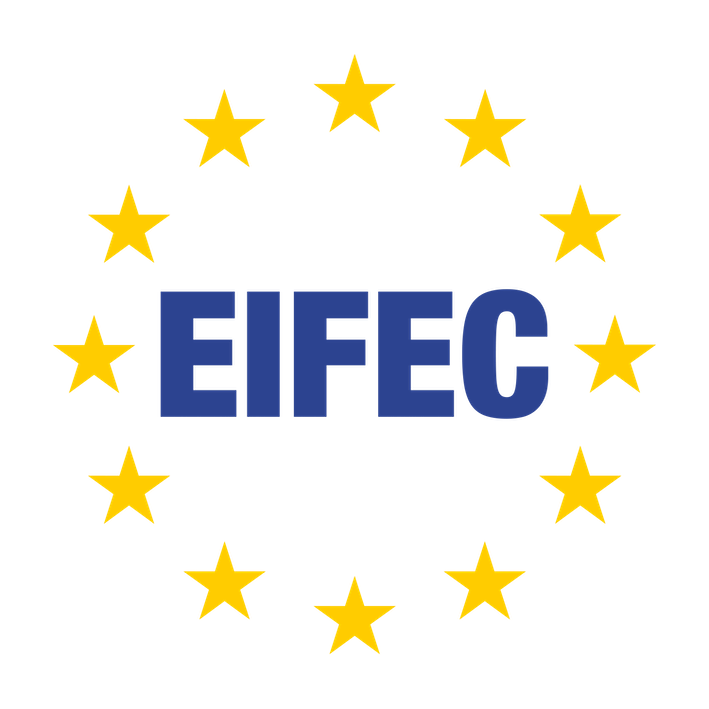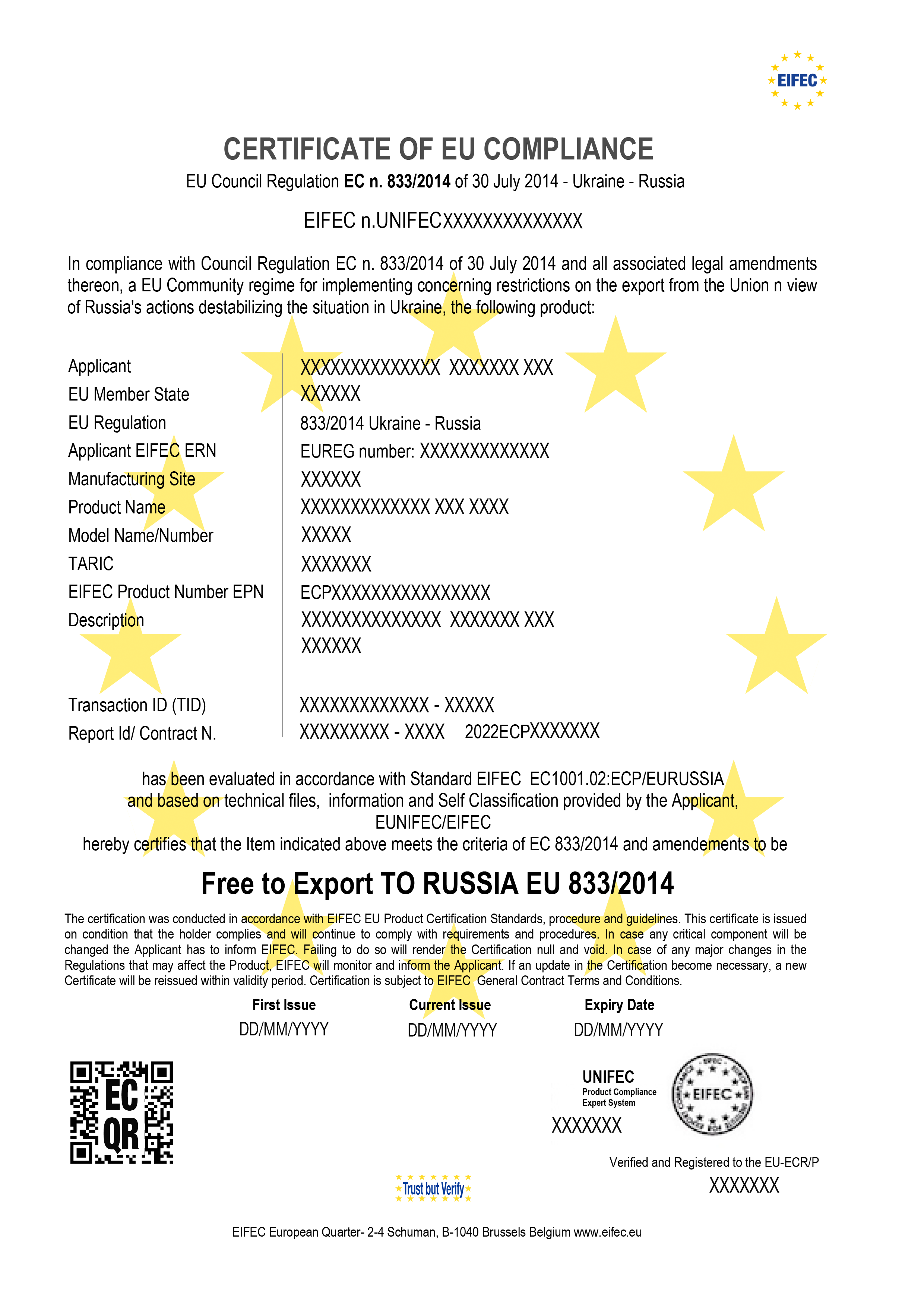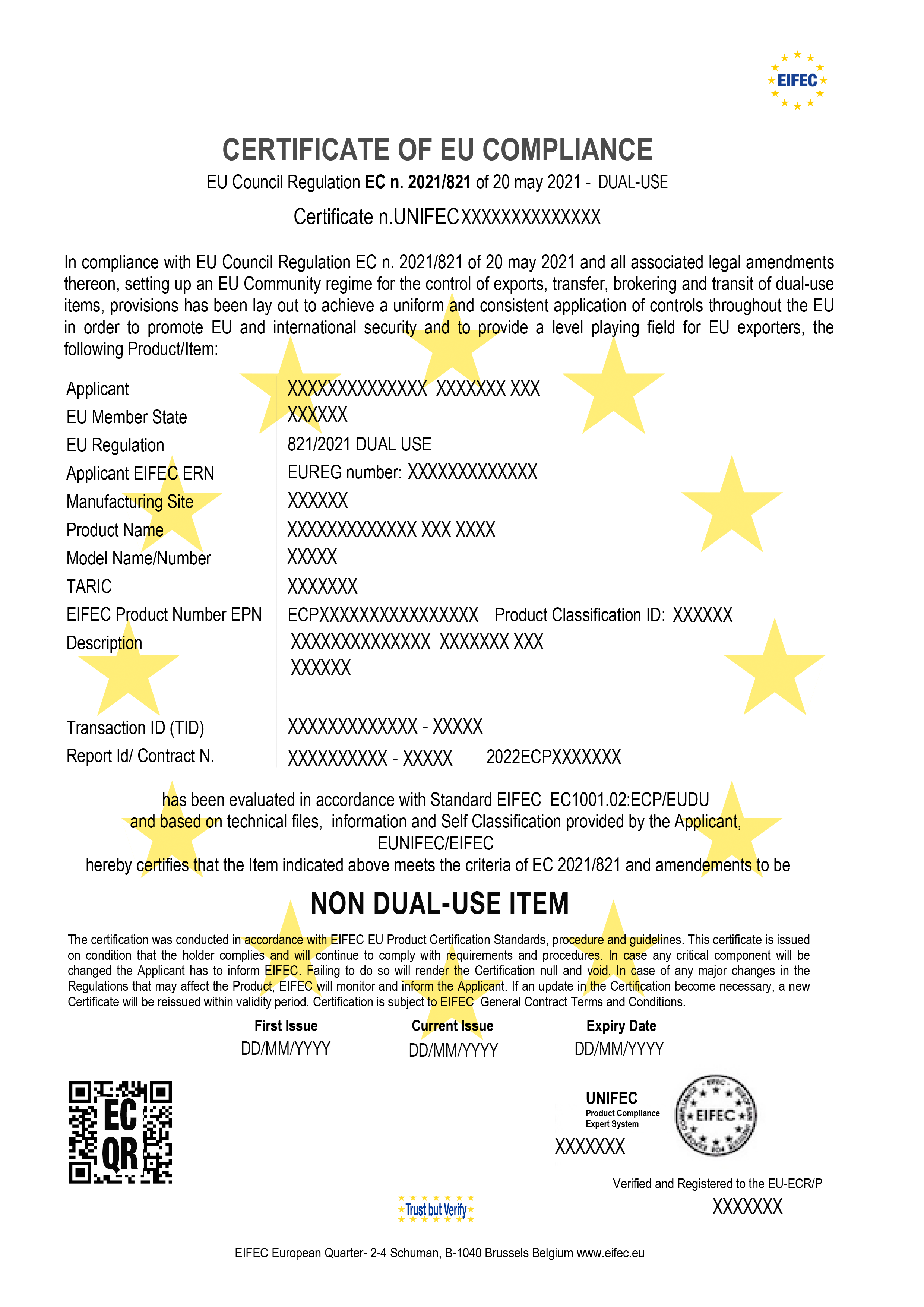RUSSIAN FEDERATION
Compliance Initiative: RUSSIA Export Compliance Product Certification
In general terms, Compliance with Sanctions and Export Control Regulations is a well-established legal requirement.
As a consequence of the international sanctions’ framework build-up against Russia and Belarus, any direct or indirect transaction with these countries must be screened to ensure the highest possible level of Compliance, to avoid blocking goods in Customs, blocking payments, and the risk of circumvention and violations that cause civil and criminal penalties.
EU Russia sanctions guidelines and FAQs are very clear:
National authorities may consider the EU exporter’s failure to conduct adequate due diligence as a breach of the Sanctions Regulation. If the EU exporter knowingly and intentionally fails to conduct such due diligence, this can be considered as participation in a circumvention scheme. (FAQ 43)
In the sanction context, two Compliance mechanisms are essential to maintain the highest level of legality:
- Enhanced Due Diligence (EDD) performed on subjects identified as third parties of the transactions (consignees, end-users, banks, etc.);
- Objective Due Diligence: verify (Classification) that a product/service complies with all applicable Sanctions and Export Control regulations.
About Classification, two specific constituents emerged from the consolidated reading of EU Commission Notices and FAQs.
- Additional technical assessment is necessary for drawing conclusionsas to whether a good is subject to the measures. This additional assessment is necessary because, in many cases, the description of the CN code is not specific enough to correspond exactly to the control text (COMMISSION CONSOLIDATED FAQs Annex – Indicative temporary correlation table for items listed in Annex VII of the Sanctions Regulation).
- Banks cannot rely on the sole declaration of their customer that the goods and technology concerned are not covered by restrictive measures and need to exercise due diligence to comply with the Regulation. (Commission Notice of 25.8.2017 COMMISSION GUIDANCE NOTE ON THE IMPLEMENTATION OF CERTAIN PROVISIONS OF REGULATION (EU) No 833/2014).
The principle that an independent third party should be involved to verify the Compliance of items to any applicable regulation is therefore a well-established process.
In the context of Russia / Belarus restrictive measures, transactions are subject to Compliance with specific requirements or conditions, according to the following main classes:
- need for Authorisation by the National Authority of a Member State
- need for Notification to the National Authority of a Member State
- Free to export (conditions apply)
- Prohibitions / Restrictions
- Derogations
The first step for the company is therefore to verify, through the above Due Diligence mechanisms, into which of these classes falls the transaction involved, but companies are rarely equipped to carry out such a proper Due Diligence.
The solution proposed by EIFEC with respect to Objective Due Diligence is third-party EU Export Compliance Product Certification.
In 2014, the COMMUNICATION FROM THE COMMISSION TO THE COUNCIL AND THE EUROPEAN PARLIAMENT - The Review of Export Control Policy: ensuring security and competitiveness in a changing world stated:
Compliance efforts could be recognised through the facilitation of control and fast-track export processes by setting clear private-sector compliance standards for the use of simplified mechanisms.
Since then, EIFEC has developed private-sector Export Compliance Standards: several Product Standards have been issued, as well as the mechanism of Certification.
ISO definition: Certification is the provision by an independent body of written assurance (a certificate) that the product, service or system in question meets specific requirements.
The EIFEC Export Compliance Product Certification indicates that the Product has been evaluated as compliant with both one, some or all of the specifications of the relevant Regulations and the EIFEC Standard for Export Compliance.
In this way, although not mandatory, this Certification based on the EIFEC Standards is for companies the most effective tool (necessary not in law but in fact) to fully meet the Due Diligence requirement (this one indeed mandatory and necessary also in law, as highlighted above).
Applicable standards for certification
EIFEC EC1001.02:ECP/EUDU
EC1001.02:ECP/EURUSSIA



